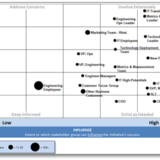 Probably the greatest challenge that scholars face in organizational behavior is getting access to information about what people do when they’re at work. Without it, they have nothing to analyze, evaluate, talk about, or publish. And if they can’t publish, then they’ll perish, because as far as universities are concerned they’ll have little, if anything, to add to the already burgeoning body of knowledge.
Probably the greatest challenge that scholars face in organizational behavior is getting access to information about what people do when they’re at work. Without it, they have nothing to analyze, evaluate, talk about, or publish. And if they can’t publish, then they’ll perish, because as far as universities are concerned they’ll have little, if anything, to add to the already burgeoning body of knowledge.
As a leader or manager, you may not care whether academicians survive or not, and that would be fair enough except for one thing: Someone has to ask the questions that you can’t or won’t ask. Someone outside of the organization needs to explore the frustrations that your employees have and to find the sources of them. Someone needs to discover why your majors programs come up short every to you try to implement them. And then, when all that has been done, someone needs to identify objectively those actions that should be taken to rectify those problems. And no matter how qualified you think you are to do this, you have, in some way, a vested interest. You know it, and so do your employees.
That bias alone will be enough to sabotage many of the efforts that you make to correct some of the problems that you already know exist, and it will do this for two reasons: One is that you’ll presuppose the solutions before considering all of the facts, and the second is that you will be unable to gather all the facts because people won’t trust you. They’ll doubt your apparent sincerity because they won’t be able to really know how you’ll react towards them until they tell you.
This is not a plug for scholars so much as it is a plea for the willingness on your part to invite others in to help you with the organizational change that you claim to want. Many management consultants are just as capable or even more so, though it shouldn’t surprise you that some scholars consult, and some consultants teach. The two activities, together with the research that supports them both, all work together to advantage of everyone, including those in your organization.
Companies tend to be rather introspective. They often see their problems as being largely internal and assume, therefore, that no one else understands them as well as they do. In addition to that, they don’t want to share their problems with others, lest the word gets out that they are facing challenges that might make them look weak to competitors. But the truth is that all companies share similar problems, especially within industries they share.
The statistic regarding the two-thirds rate of failure in major programs is a perfect example. In the grand scheme of things, hardly anyone gets it right. And so it’s rather foolhardy to assume that in order to preserve your confidentiality you have to solve these things on your own.
In case you don’t know it, scholars and consultants not only omit, but they also mask, the identity of the companies from which they gather their research materials. Some refer to them in very broad terms, while others give them a different name. Either way, the information in the public domain is so opaque that you’d have to be intimately acquainted with the research of the author in order to know which companies were involved.
There’s a real benefit to letting academics and consultants who teach into your organization. The most professional of them will share their findings with you. Sometimes the research they do will be part of a consulting assignment, which is fair enough; but how else could they make recommendations?
Anytime you draw on the expertise of others who are outside of your organization you add a dimension to your understanding that wasn’t there before. And that means that instead of pretending that you already have the answers and that no one can teach you anything, you need to have the humility to admit that another pair of eyes, another perspective, or unbiased opinion is likely to do you for more good than harm.
Choose your counselors wisely, but choose them. There’s no reason for you to go it alone.











